Weeds be gone! This tea contains lots of antioxidants and may help reduce inflammation
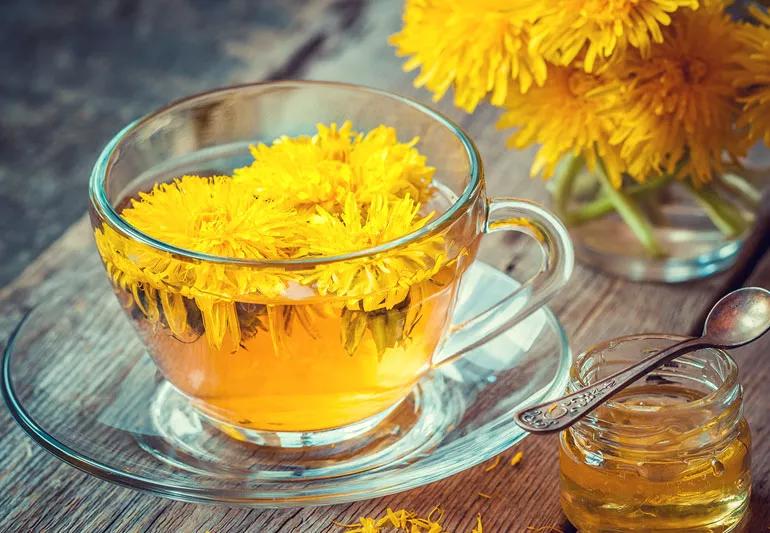
Fancy a spot of tea? Prefer black tea? Or maybe some matcha? What about hibiscus tea?
Advertisement
Cleveland Clinic is a non-profit academic medical center. Advertising on our site helps support our mission. We do not endorse non-Cleveland Clinic products or services. Policy
While there are thousands of tea options, you might have seen dandelion tea on the store shelf when you were restocking your tea supply.
Wait, what? Yes, dandelion tea is made from those pesky weeds you see in your yard. The plant is full of vitamins, and when consumed as a tea, it may offer some benefits like reducing inflammation and lowering cholesterol.
So, is it worth adding dandelion tea to your rotation?
Registered dietitian Nancy Geib, RD, LDN, explains dandelion tea benefits and what parts to use to reap the benefits.
The dandelion plant is known as Taraxacum officinale and can be found on every continent except for Antarctica.
And while you may see dandelions popping up on tree lawns and backyards, every part of the dandelion, including the flower, root and stems, is actually edible or able to be consumed.
But typically, dandelion tea is made from the leaves, although the root is often ground and used as well. You may also find teas that are made from leaves, flowers and root. Most teas clearly label what part of the dandelion was used.
“The only part not used is the stem due to its bitterness,” says Geib. “Leaves are best harvested in the spring. Roots are best harvested in the fall.”
Advertisement
Dandelion tea is reported to have some of the same nutritional benefits as dandelions. And it’s full of certain vitamins and minerals like:
“Dandelion tea has been known to be a volume diuretic, gently nudging digestive and detoxification liver and bile systems into gear,” reports Geib.
And there are some more potential benefits of dandelion root tea.
“Dandelion tea made using the root has a stronger detoxifying action on the liver than the leaves,” explains Geib. “And the root is a great ally for the liver, known to help clear up acne or other skin disruptions with the root cause being a stagnant liver.”
Geib shares more benefits of dandelion tea:
You’ve probably heard a lot about antioxidants and how good they are for you and your health. Antioxidants are your body’s defense against free radicals, which can cause damage to your body on a cellular level.
And research shows that dandelions — and by default, dandelion tea — have high amounts of beta-carotene, an antioxidant that helps protect against cell damage and oxidative stress. You can also find polyphenols — an antioxidant commonly found in red wine — in dandelions and dandelion tea. Polyphenols, which are anti-inflammatory, may also help with heart health, according to research.
Focusing on the polyphenols that are found in dandelions, thanks to their anti-inflammatory properties, research shows that dandelions may reduce inflammation.
“Dandelions also contains taraxasterol, a compound known for having significant antioxidant properties that combat inflammation by regulating white blood cells and repress them from setting off inflammation unnecessarily,” says Geib.
If you’re trying to manage your blood pressure, there are some promising signs that dandelion tea may help.
And that’s thanks to the levels of potassium found in the tea. Potassium interacts with your kidney and helps your vital organ remove excess sodium from your body. The nutrient may also help reduce strain on your blood vessel’s walls, which can improve your overall heart health.
Studies have shown that dandelion tea may affect the regulation of lipid and sugar metabolism. This can be helpful for those with Type 2 diabetes.
“The root of a dandelion benefits the body by improving digestion, inhibiting activity of lipase, known to reduce fat absorption, which may promote weight loss,” states Geib. “More specifically, weight loss is largely due to loss of water and not fat loss.”
In the fight against heart disease, you need to have healthy cholesterol. And research shows that dandelions may help by reducing triglyceride levels, which are just as bad as having high levels of low-density lipoprotein (LDL) cholesterol.
Advertisement
You can drink dandelion tea every day.
“Recommendations are two to three times a day,” says Geib. “Start your day with a cup of dandelion root tea and build it up slowly. Its diuretic properties can increase urination, so go gentle and let your body adjust to it first.”
She also says that most herbalists agree that long-term use of dandelion is needed for best results.
In the past, dandelion tea has been used for various reasons, including as an appetite stimulant and to help improve liver and kidney function.
“However, though studies are inconclusive, recommendations are that individuals with liver, gallbladder problem or gallstones or kidney disease use caution when using dandelions — eating or drinking it,” notes Geib.
Care should be taken if you’re already taking a diuretic, as dandelion is a diuretic, too.
“As you would with dandelion, you want to talk to your healthcare provider before using dandelion tea,” says Geib.
There are certain medications that may interact with the tea like:
And if you’re pregnant, it’s best to avoid drinking dandelion tea, as studies on how dandelion can affect a pregnancy are inconclusive at this time.
Advertisement
Also, those who have a ragweed allergy should avoid dandelion.
While more research is needed to prove all these potential health benefits of dandelion tea, Geib says you can start by adding dandelion tea as part of your morning routine.
“Dandelion tea can be used as a coffee substitute,” she continues. “While it doesn’t have caffeine, the roots have a flavor that’s comparative to coffee. It’s really quite tasty.”
Advertisement
Learn more about our editorial process.
Advertisement

Catechins (antioxidants) in green tea help fight inflammation and diabetes, while improving memory and heart health
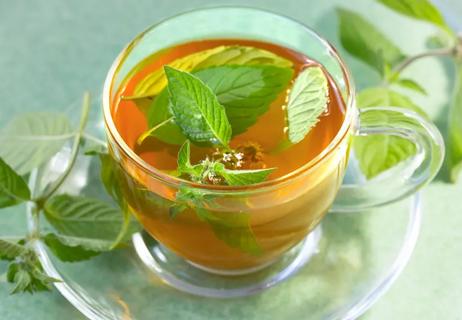
This subtly minty beverage can help balance hormones and loosen stiff joints
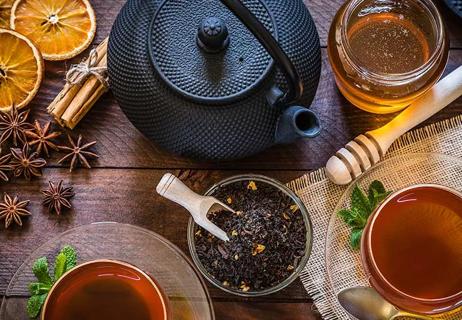
Flavonoids in black tea are good for your health, helping prevent strokes and heart disease
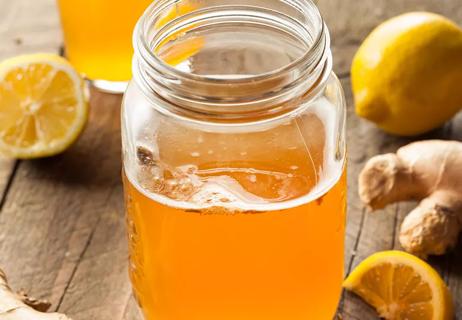
Research is limited, but there’s evidence the fermented tea offers some health benefits
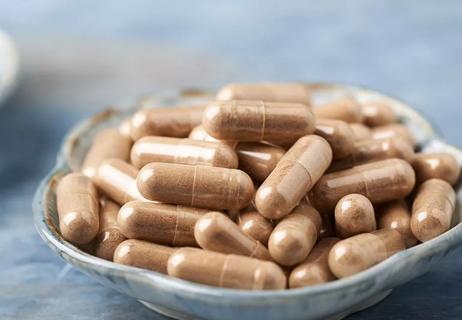
The energy drink staple packs a caffeine punch, but caution is recommended

From antioxidants to anti-inflammatory effects, a dietitian explains all

There’s a perfect tea option for every condition

Study reveals hot tea can raise esophageal cancer risk

Wearing a scarf, adjusting your outdoor activities and following your asthma treatment plan can help limit breathing problems

Your diet in the weeks, days and hours ahead of your race can power you to the finish line

When someone guilt trips you, they’re using emotionally manipulative behavior to try to get you to act a certain way